Audi Q2 vs VW Tiguan - Differences and prices compared
Compare performance (300 HP vs 272 HP), boot space and price (24900 £ vs 33300 £ ) at a glance. Find out which car is the better choice for you – Audi Q2 or VW Tiguan?
Costs and Efficiency:
Price and efficiency are key factors when choosing a car – and this is often where the real differences emerge.
Audi Q2 has a evident advantage in terms of price – it starts at 24900 £ , while the VW Tiguan costs 33300 £ . That’s a price difference of around 8443 £.
Fuel consumption also shows a difference: VW Tiguan manages with 1.40 L and is therefore significantly more efficient than the Audi Q2 with 4.80 L. The difference is about 3.40 L per 100 km.
Engine and Performance:
Power, torque and acceleration say a lot about how a car feels on the road. This is where you see which model delivers more driving dynamics.
When it comes to engine power, the Audi Q2 has a hardly perceptible edge – offering 300 HP compared to 272 HP. That’s roughly 28 HP more horsepower.
In acceleration from 0 to 100 km/h, the Audi Q2 is clearly perceptible quicker – completing the sprint in 4.90 s, while the VW Tiguan takes 5.90 s. That’s about 1 s faster.
Both models offer the same torque – 400 Nm.
Space and Everyday Use:
Beyond pure performance, interior space and usability matter most in daily life. This is where you see which car is more practical and versatile.
Both vehicles offer seating for 5 people.
In curb weight, Audi Q2 is distinct lighter – 1330 kg compared to 1599 kg. The difference is around 269 kg.
In terms of boot space, the VW Tiguan offers clearly perceptible more room – 652 L compared to 405 L. That’s a difference of about 247 L.
When it comes to payload, VW Tiguan hardly perceptible takes the win – 533 kg compared to 510 kg. That’s a difference of about 23 kg.
Who wins the race in the data check?
The VW Tiguan holds a decisive overall lead in the objective data comparison.
This result only shows which model scores more points on paper – not which of the two cars feels right for you.
Costs and Consumption
View detailed analysis
Engine and Performance
View detailed analysis
Dimensions and Body
View detailed analysis

VW Tiguan
Audi Q2
The Audi Q2 packs Audi’s premium attitude into a compact, cheeky package that turns city streets into a runway for tasteful design and clever practicality. It’s an easy car to live with thanks to an upscale cabin, composed manners and sprightly handling, and while it won’t satisfy someone chasing sports-car thrills, it’s a smart, stylish pick for buyers who want substance with a wink.
details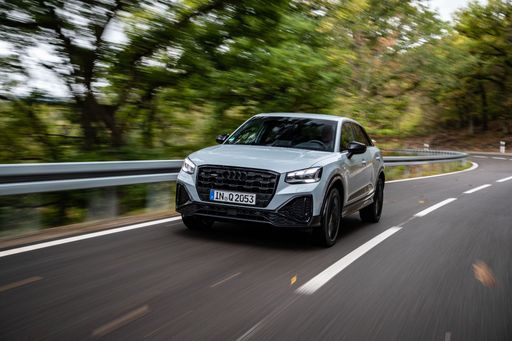
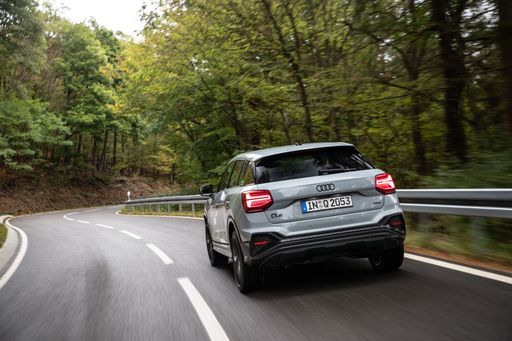
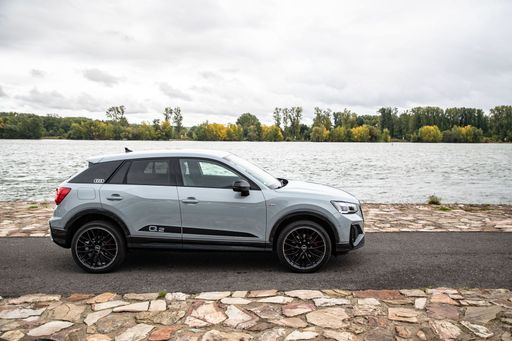
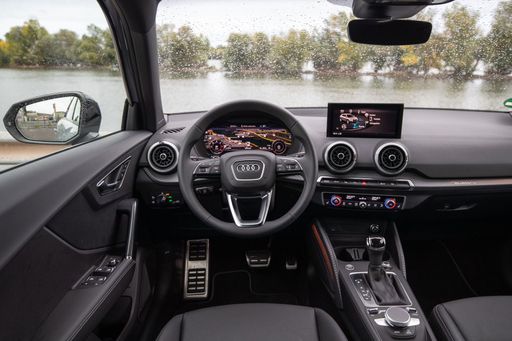
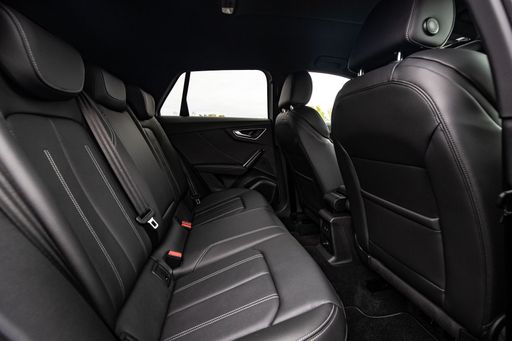
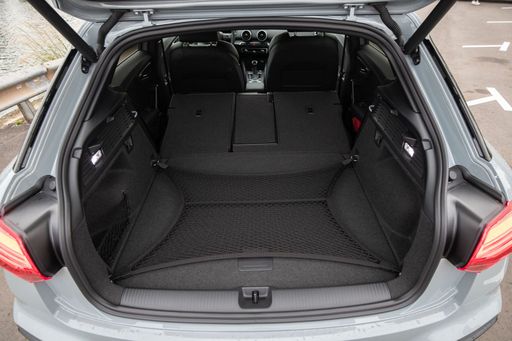
VW Tiguan
The VW Tiguan blends sensible family practicality with a dash of German polish, delivering a calm, reassuring ride and a cabin that never feels like an afterthought. For buyers who want an SUV that’s easy to live with yet still nicely dressed, the Tiguan is the grown‑up choice that keeps a cheeky wink in reserve.
details





Costs and Consumption |
|
|---|---|
|
Price
24900 - 43600 £
|
Price
33300 - 51900 £
|
|
Consumption L/100km
4.8 - 8.1 L
|
Consumption L/100km
1.4 - 8.4 L
|
|
Consumption kWh/100km
-
|
Consumption kWh/100km
-
|
|
Electric Range
-
|
Electric Range
118 - 126 km
|
|
Battery Capacity
-
|
Battery Capacity
19.70 kWh
|
|
co2
127 - 183 g/km
|
co2
32 - 190 g/km
|
|
Fuel tank capacity
-
|
Fuel tank capacity
45 - 58 L
|
Dimensions and Body |
|
|---|---|
|
Body Type
SUV
|
Body Type
SUV
|
|
Seats
5
|
Seats
5
|
|
Doors
-
|
Doors
5
|
|
Curb weight
1330 - 1610 kg
|
Curb weight
1599 - 1890 kg
|
|
Trunk capacity
355 - 405 L
|
Trunk capacity
490 - 652 L
|
|
Length
-
|
Length
4539 mm
|
|
Width
1794 - 1802 mm
|
Width
1842 - 1859 mm
|
|
Height
-
|
Height
1656 - 1658 mm
|
|
Max trunk capacity
-
|
Max trunk capacity
1486 - 1650 L
|
|
Payload
450 - 510 kg
|
Payload
460 - 533 kg
|
Engine and Performance |
|
|---|---|
|
Engine Type
Petrol, Diesel
|
Engine Type
Petrol, Petrol MHEV, Diesel, Plugin Hybrid
|
|
Transmission
Manuel, Automatic
|
Transmission
Automatic
|
|
Transmission Detail
Manual Gearbox, Dual-Clutch Automatic
|
Transmission Detail
Dual-Clutch Automatic
|
|
Drive Type
Front-Wheel Drive, All-Wheel Drive
|
Drive Type
All-Wheel Drive, Front-Wheel Drive
|
|
Power HP
116 - 300 HP
|
Power HP
130 - 272 HP
|
|
Acceleration 0-100km/h
4.9 - 10.5 s
|
Acceleration 0-100km/h
5.9 - 10.6 s
|
|
Max Speed
-
|
Max Speed
210 - 242 km/h
|
|
Torque
200 - 400 Nm
|
Torque
220 - 400 Nm
|
|
Number of Cylinders
3 - 4
|
Number of Cylinders
4
|
|
Power kW
85 - 221 kW
|
Power kW
96 - 200 kW
|
|
Engine capacity
999 - 1984 cm3
|
Engine capacity
1498 - 1984 cm3
|
General |
|
|---|---|
|
Model Year
2025
|
Model Year
2024 - 2025
|
|
CO2 Efficiency Class
D, F, E, G
|
CO2 Efficiency Class
G, D, E, F, B
|
|
Brand
Audi
|
Brand
VW
|
What drivetrain options does the Audi Q2 have?
The Audi Q2 is offered with Front-Wheel Drive or All-Wheel Drive.




